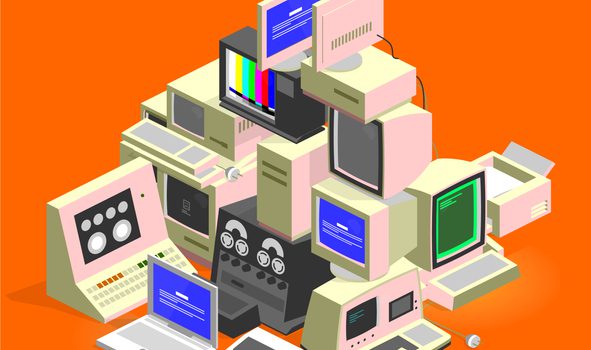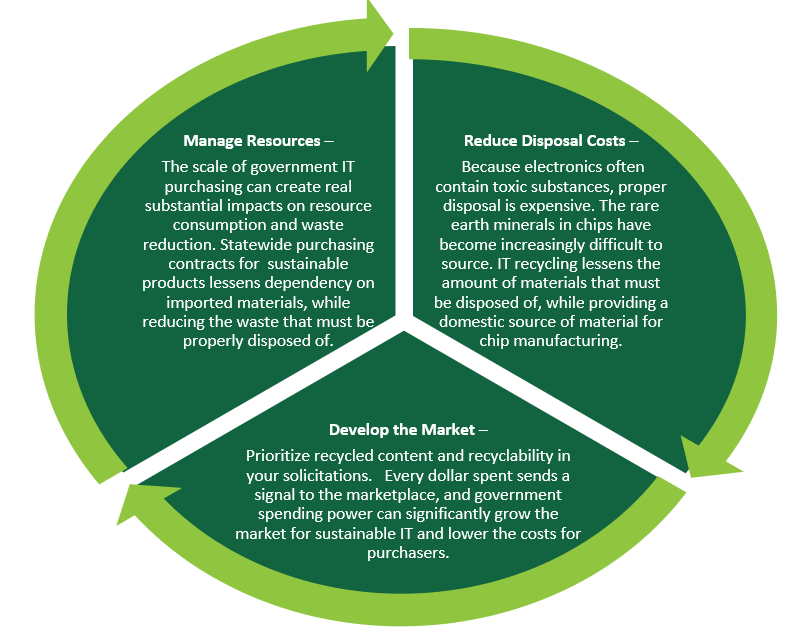 Sustainable Purchasing
Sustainable Purchasing A More Sustainable IT Model
The Covid pandemic has underscored issues with U.S. reliance on supply chains abroad in many areas, including semiconductor manufacturing. In February, President Biden signed Executive Order 14017 to address supply chain vulnerabilities and a semiconductor shortage impacting a variety of industries like cellular devices, information technology, and automobiles.
Commonly known as chips, semiconductors are used to power electronics and facilitate their operational functions. Much of the world’s chips are manufactured in places like China, South Korea, and Singapore. The EO’s 100-day review is the first step in an effort to diversify the United States’ supply chain dependence for technology components such as rare earth minerals from China.
The lack of resilience in the IT supply chain makes domestic organizations more vulnerable to disruptions like the ones created by the Covid-19 pandemic and further illustrates that the traditional means of producing and purchasing IT is unsustainable in the long term.
Pulse is here to help you set up more sustainable sourcing solutions for your IT future.
Create a Circular IT Economy
One key way to lessen chip supply chain dependence is to recycle more electronic IT products here in the US while leveraging government purchasing power to grow the market for IT products manufactured from recycled materials. Transitioning technology from a dominantly linear economy to a more circular economy would produce benefits for purchasers and users.

